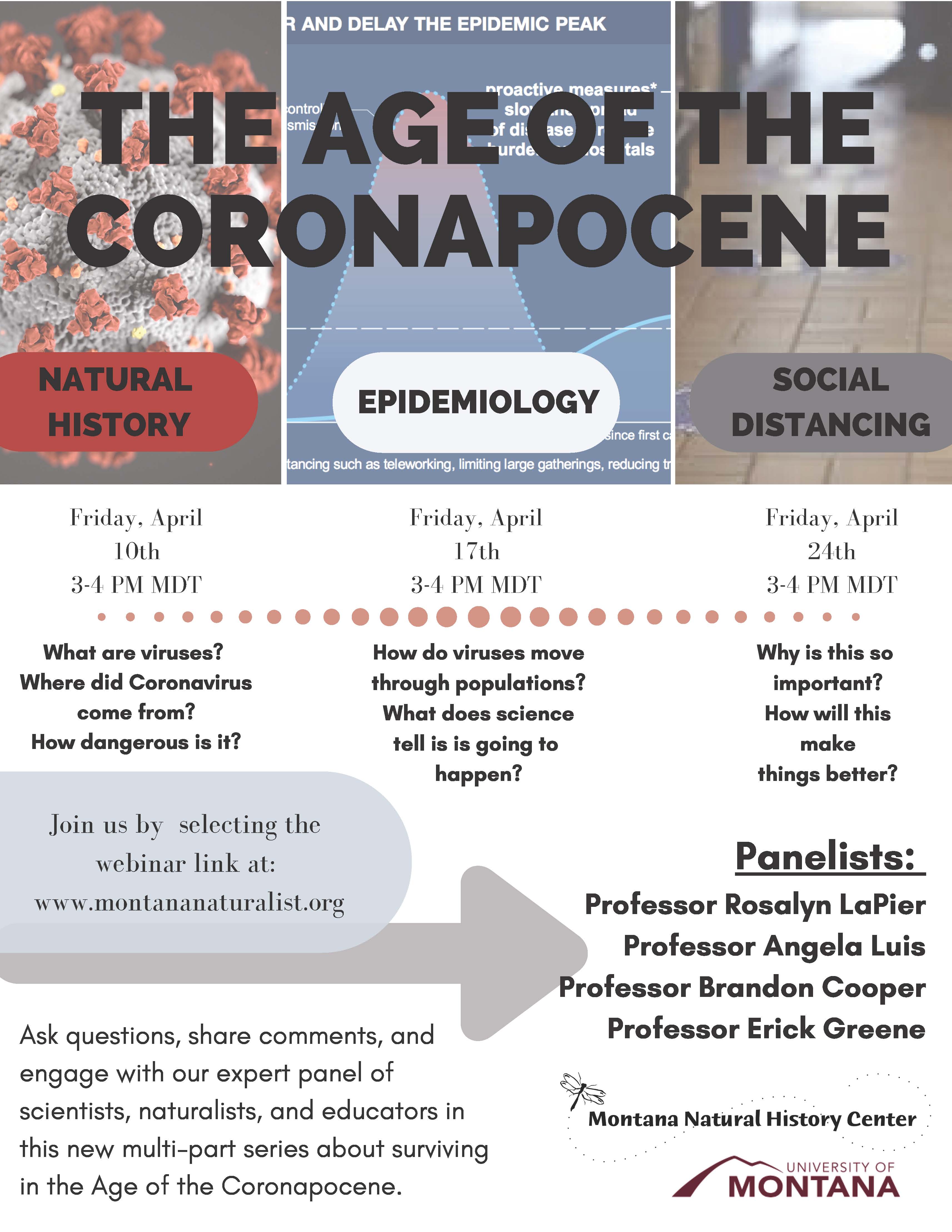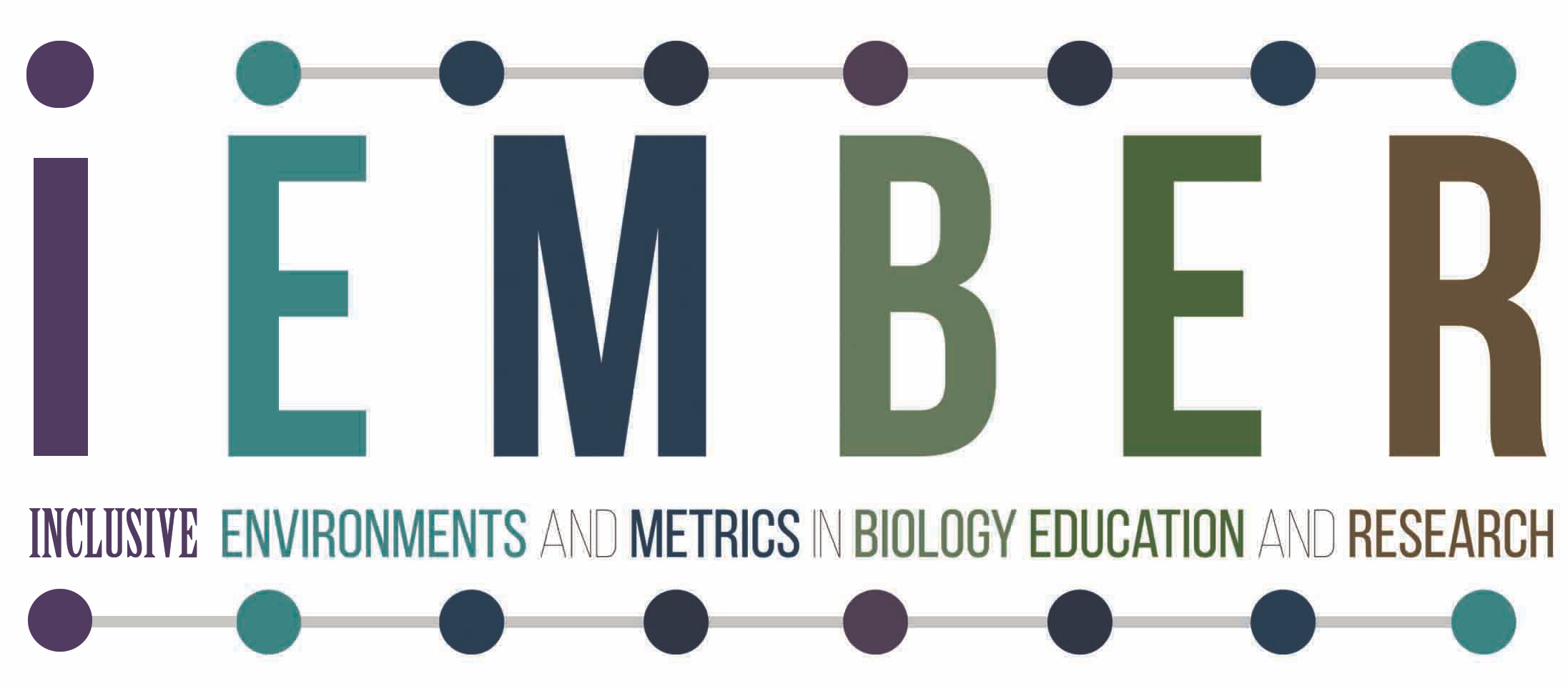
In these mini-Newsletters, we continue to focus on the rapid, nationwide transition to online education, highlighting resources for now, and next steps for collaborations within the new normal.
Teaching Quantitative Biology Online: OERs, Forums, and Community

Check out Figure of the Week (an adaptation of Figure of the Day) by Raisa Hernández Pacheco for teaching online. Have you used this module? Have a question? Feel free to share in this forum!
Teaching Quantitative Biology Online Office Hours provide an opportunity to talk with others in the community who have some experience with teaching online, quantitative biology resources, or other valuable information about teaching. These volunteers have offered their time to facilitate conversations, provide information, and support their colleagues as courses move online for the semester.
March 30 - April 23, 2020: See here for links to join and more information.
- M/W: 10:00-10:30 am PDT / 1:00-1:30 pm EDT
- Tu/Th: 7:00-7:30 am PDT / 10:00-:10:30 am EDT
Interested in holding an office hour for your colleagues? Email deb.rook@bioquest.com
Resources for Teaching Quantitative Biology Online is a collection of open education resources (OERs) that are designed to teach quantitative skills in a variety of biological contexts and will work well in an online setting with minimal adaptation. This webpage is a rapid response to the need for our community of educators to move learning online quickly. QUBES partners and individuals can share and highlight modules, as well as indicating adaptations made to existing OERs. Join the group to contribute your own ideas! We expect this resource to grow quickly, so check back often.

Remote Teaching Tools with SimBio
If you are in need of remote teaching tools due to the COVID-19 pandemic, SimBio is here to help! SimBio’s inquiry-driven virtual labs and interactive chapters cover topics in introductory biology, ecology, evolution, and cell biology, and use built-in tools to make it easy to set up, deliver, and assess student work. If you and your course are new to SimBio, we’re offering free trials of SimBio’s modules this term to help instructors move courses online. (If you are an existing customer and your classes are being impacted by closures, you may add additional modules to your SimUText at no extra charge.) For more information, please visit the coronavirus response page on the SimBio website.”
Remote Learning with SimBio - Webinar Information
NIMBioS Webinar Series: Modeling for a Globally Connected World

NIMBioS is hosting a series of webinars focusing on topics at the interface of mathematics and biology. Learn more about upcoming webinars in the series at NIMBioS
Tuesday, April 14, at 3:30 p.m. Eastern
Online, Free and Open to the Public (but you need to register for the webinar here!)
Title. Modeling for a globally connected world: What models are good for and how they work

Abstract. Policies for the COVID-19 pandemic response have relied upon models of various types to project future trends and assess the potential impacts of alternative amelioration strategies. I invite you to join us for basic overviews of the process of modeling, the “art” of model construction, and the array of different kinds of approaches (mathematical, computational, and graphical) that are applied in the life sciences. The presentation is designed for a general audience without modeling background.
Dr. Louis Gross, NIMBioS Director and Chancellor's Professor of Ecology and Evolutionary Biology and Mathematics at the University of Tennessee.
Join the University of Montana for "The Age of the Coronapocene"

Fridays, April 10th, 17th & 24th at 3pm-4pm (Mountain Time). Zoom link will be posted on www.montananaturalist.org
Ask questions, share comments, and engage with our expert panel of scientists, naturalists, and educators in this new multi-part series about surviving in the Age of the Coronapocene.

iEMBER: April (Virtual) Networking Event
Saturday April 18th, 2020, 10-1 PT/11-2 MT/12-3 CT/1-4 ET
Join us for Lightning talks, Discussion on the Challenges of Equity When Teaching Online, an Update from two current iEMBER collaboration teams, and time for Small Group Discussions Zoom Break-out rooms.
Learn more and sign up at the iEMBER QUBESHub Group

Putting Universal Design for Learning into Practice
Tuesday, April 14, 2020 1:00 - 2:00 PM EDT
Sign up for Putting UDL into Practice!
Using the syllabus as our template we'll begin to explore how to put the components of universal design and the four core principles (Perceivable, Operable, Understandable and Robust or POUR) discussed in more detail in our March webinar into practice. We'll explore how you can shape your class syllabus to provide a welcoming environment for all students, including those with disabilities. There will be time to get answers to your accessibility questions, and examples of how others in the community college sector are putting universal design for learning into practice in their classrooms and labs.
ESA Interdisciplinary Power of Data Research Travel Awards

Applications Due: April 19, 2020. Application page here.
The Ecological Society of America (ESA) invites graduate students and early career scientists from diverse underrepresented groups to join a multidisciplinary network to explore opportunities for collaborative research using big data now available in the ecological sciences. The ESA Interdisciplinary Power of Data Research Travel Awards allow participants to engage in research skills workshops, diversity networks and focused conversations on the Power of the Data Revolution at the 2020 ESA Annual Meeting and beyond. This is a special opportunity for diverse underrepresented scientists interested in enhancing or expanding your research interests with your peers from other disciplines through the use of Big Data drawn from the many branches of the ecological sciences.
At this time, Ecological Society of America is still planning to hold the Annual Meeting, August 2-7 in Salt Lake City, Utah. We are closely monitoring updates from the local and national public health authorities regarding the novel coronavirus (COVID-19). ESA is fully committed to providing a safe and healthy environment for all meeting attendees. Questions? teresa@esa.org

Writing Studio Short Course: July 21-23 in Minneapolis, MN
In partnership with Society for the Advancement of Biology Education Research (SABER) meeting, CourseSource is hosting a Writing Studio Short Course. We understand that things are difficult right now and travel situations are hard to predict. We will make informed decisions about meeting in person as we get closer to the date. For now, we want to go ahead with the application process so that we can move forward with providing this opportunity, potentially online if needed. Faculty from community colleges, primarily undergraduate institutions, and minority-serving institutions (colleges and universities) are encouraged to apply.
Applications are open and review will begin on April 20, 2020.
Extending Specimens: Curators in the Classroom with BLUE
BLUE (Biodiversity Literacy in Undergraduate Education) is leading Module Development and Implementation Experience for individuals wishing to commit to working in a community of practice, alongside researchers and scientists from the museum community to modify, adapt, and implement a module in the virtual classroom.
If you are interested in developing, implementing, or utilizing the curators expertise and digital biodiversity data in the classroom, see the Curators in the Classroom site:
- Module 1: Form and Function, Diversity, and Dispersal: Natures Flying Machines. March 30 – April 3 (educator); April 6–10 (delivery)
- Module 2: Phenology, Asynchrony, and Climate: Butterfly phenology and Climate Change, April 6–10 (educator); April 13-17 (delivery)
- Module 3: Human evolution/co-evolution: A tale of 3 lice, April 13–17 (educator); April 20–25 (delivery)
Moving a Project to a Collaborative Space? How can QUBESHub help?
Use this 6-question survey to communicate your needs for planning. The QUBESHub Team will respond, helping to support you to take your conference or project online.
Members of the QUBES team are participating in some re-imagined conferences that will be happening through the QUBESHub. Members of the QUBES team are always looking to meet others who have a passion for quantitative biology education. Reach out so we can help you gather your collaborators, move projects forward, and continue to move quantitative biology forward. Connect with us by submitting a support ticket

From left to right: Sam Donovan (Director of OER), Carrie Diaz Eaton (Director of QUBES Consortium), Kristin Jenkins (Director of BioQUEST), Drew LaMar (Director of Cyberinfrastructure), and Jeremy Wojdak (Director of Professional Development).
Do you have a product or result from a QUBES sponsored activity? Help us measure our success by sharing your product or result with QUBES. Learn how to cite QUBES.
|